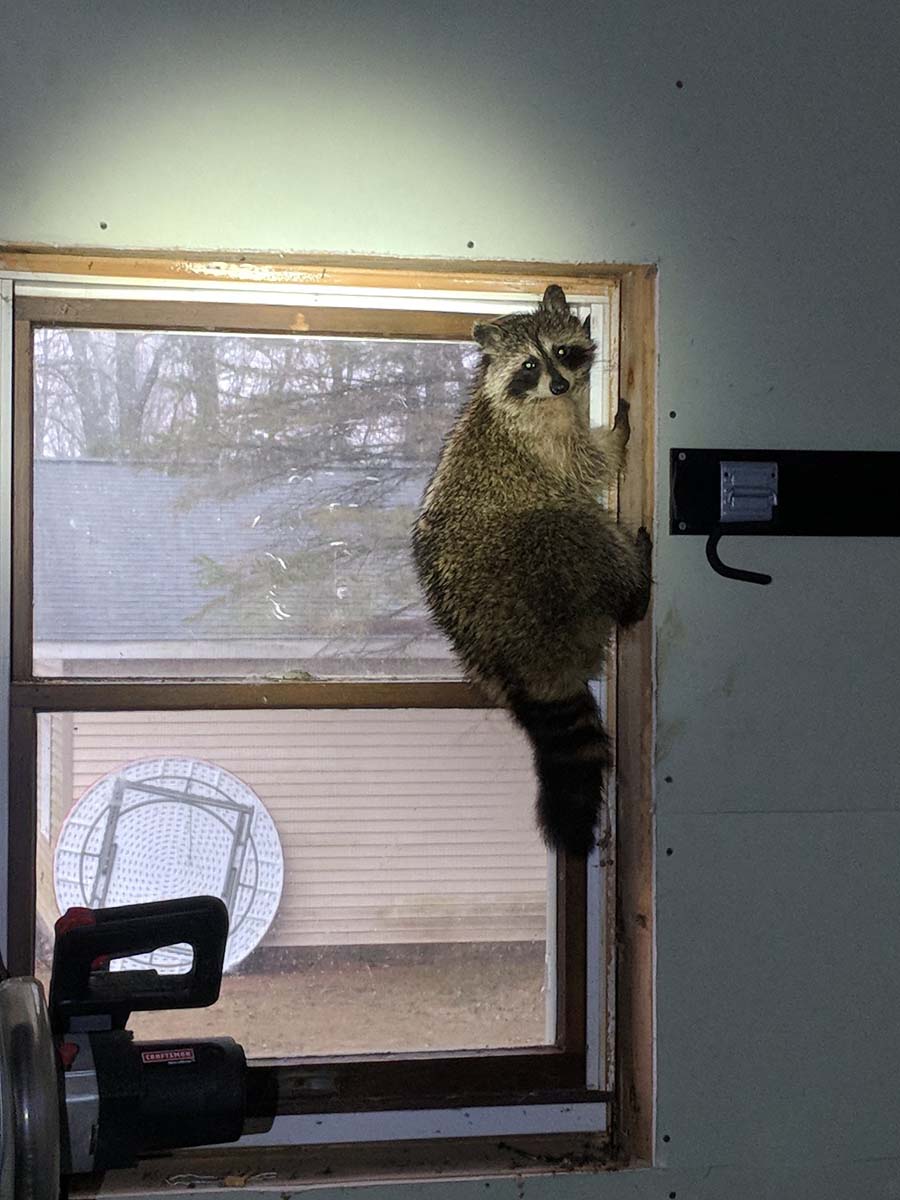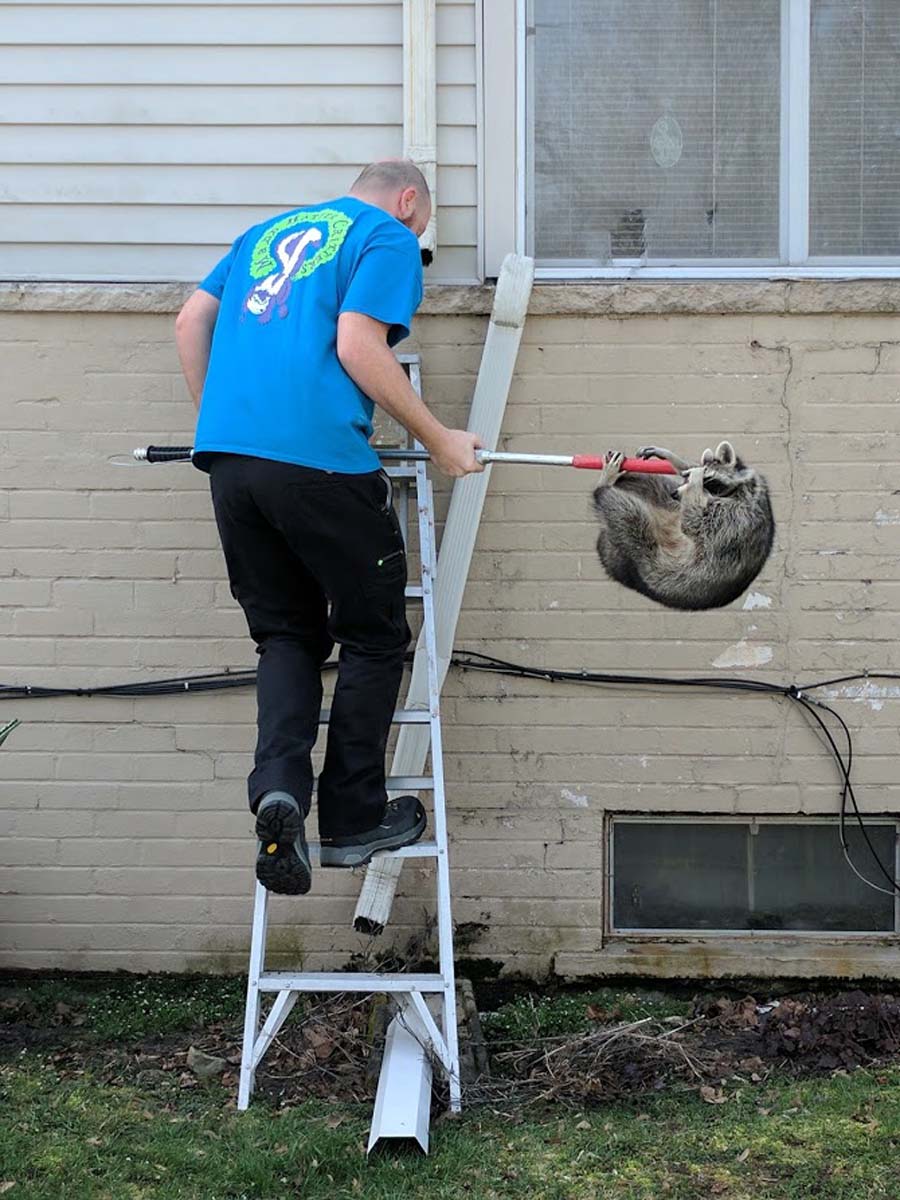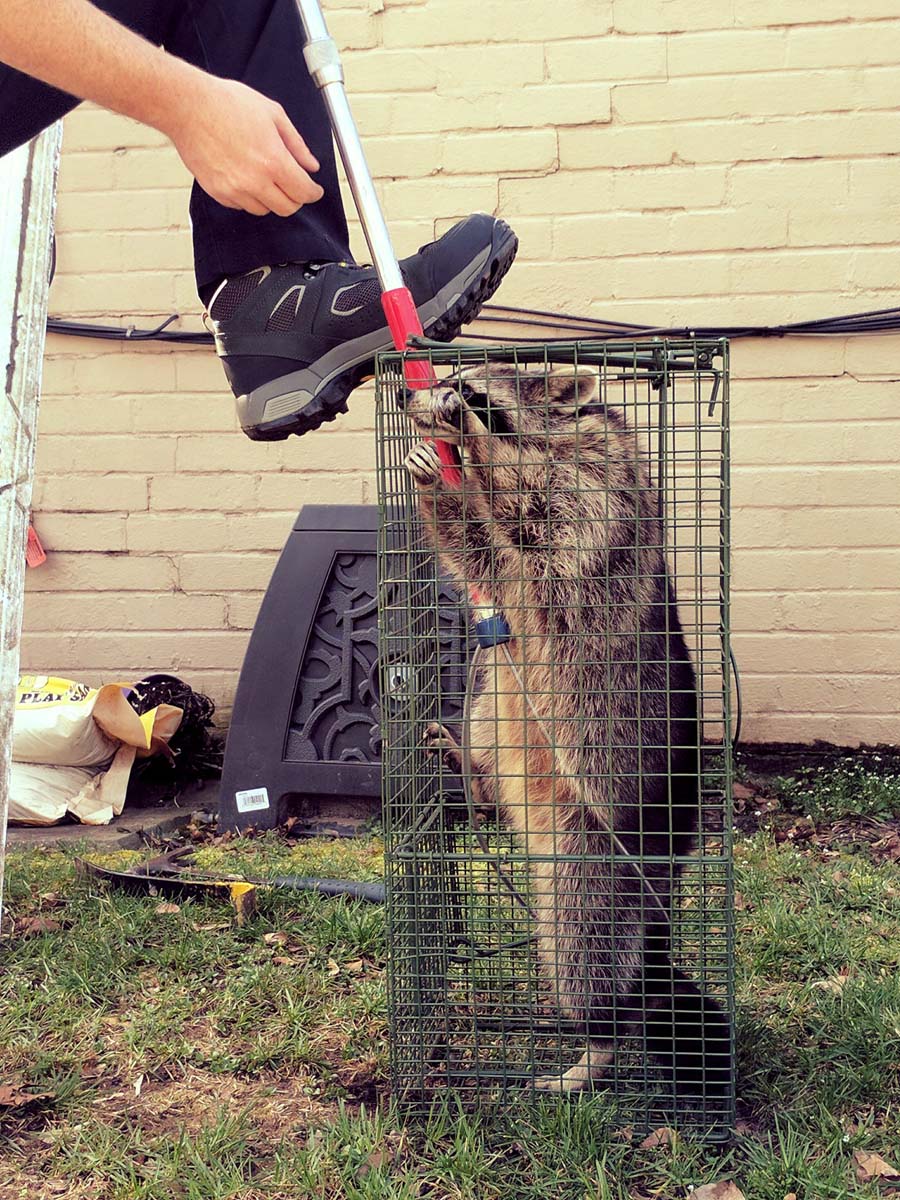
Raccoons
Raccoon Removal in Grand Rapids, Michigan
Raccoons are one of the most damaging pest species and one of the most common. They are typically around the size of a small dog with a weight of up to 25 lbs. Known for being highly adaptable, raccoons live everywhere from trees and caves to roofs, barns, and abandoned vehicles. Wherever there’s trash, it’s safe to assume a raccoon is near. Since raccoons are a popular pest, we’re going to answer some of the most common raccoon-related questions.
What do raccoons eat?
Raccoons are omnivores – they eat both meat and vegetables. Since they adapt to several different habitats and climates, raccoons eat everything from nuts and vegetables to rats, squirrels, insects, and birds. If a raccoon has made a home for itself near a stream, it’s more than likely eating fish, snails, water snakes, and frogs. Since they love meat and vegetables, raccoons are known for eating our scraps – hence why we always see them feasting on our trash.
Where do raccoons live?
One known fact about raccoons is that they are highly adaptable – meaning they can live in a variety of habitats. Most often, we find raccoons living in trees or caves. However, raccoons love to invade areas where humans are. When we’re called for raccoon removal, we typically find them beneath decks, barns, vehicles, and worst case, inside a home.
What kind of problems do raccoons cause?
First and foremost, it’s important to note that raccoons have an aggressive side, especially in the search for food. This hunt for something to eat is usually what leads to the problems raccoons create. For example, they can create serious damage in vegetable gardens, raid chicken coops and fish ponds, and climb into trash cans creating a mess. Raccoons aren’t graceful creatures – if they’re near, they’re sure to cause some damage.
What diseases are associated with raccoons?
Like many other wildlife species, raccoons are subject to some diseases that can be transmitted to humans and pets. The most common disease we’re all familiar with is rabies – which can be transmitted to humans and domestic animals through a bite or scratch. Other diseases associated with raccoons include Roundworm, Giardiasis, and Leptospirosis – all of which can be transmitted to humans.
Raccoons leave behind bacteria through their feces and urine and track bacteria throughout an environment. Invading raccoons require immediate removal and sanitation due to the countless number of health concerns related to the feces and urine of raccoons.
Preventative Measures
- Avoid feeding raccoons.
- Limit access to trash cans.
- Feed pets indoors.
- Limit access to your pets.
- Close or block all entry points to your home.
If you’re in need of professional raccoon removal services, look no further than Madd Hatter Critters. We have the experience, equipment, and training to properly remove wildlife from a variety of environments.
For more information on raccoon removal or to schedule an appointment, call Madd Hatter Critters at (616) 250-3370.
Communities Served
- Grand Rapids
- Rockford
- Ada
- Grandville


